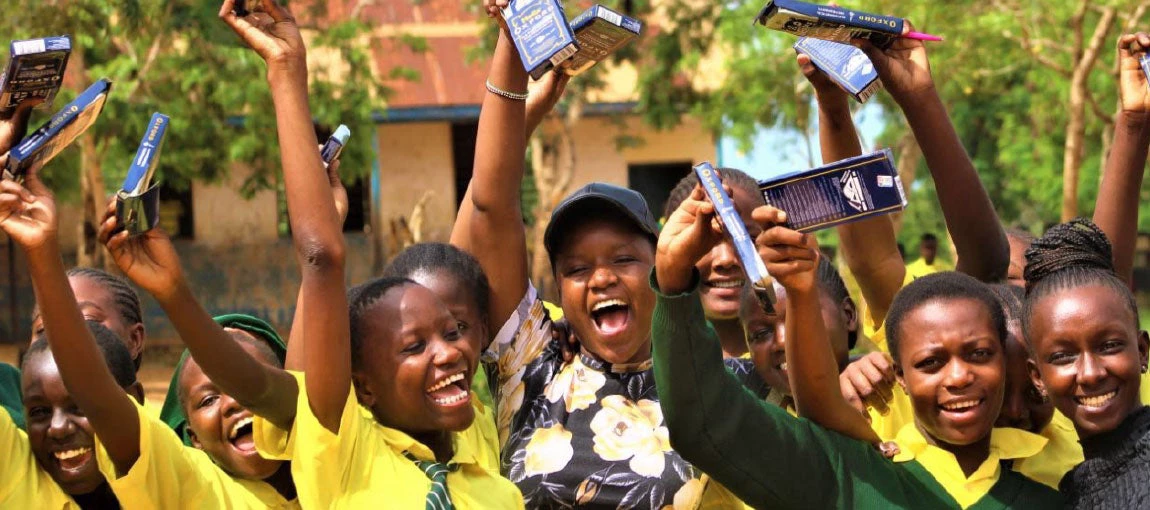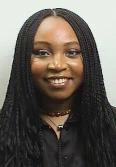 Silala Primary School in Ganze. Photo: ELIMU CARE
Silala Primary School in Ganze. Photo: ELIMU CARE
On Education Day in 2024, we are delighted to share a conversation with Farida Ally. Farida is a Kenyan education activist and Founder and Director of ELIMU CARE, a community-based organization. We aim to showcase her dedication to education.
What helped you become a strong student and learner? Is there a story book that made you want to read or a particular teacher who gave you confidence?
Growing up, the struggles my family faced fueled my belief in the power of education. The words of encouragement we received in school resonated strongly with me.
Witnessing my uneducated mother's efforts to provide for our family and support my education against all odds made me a determined student. It was her sacrifices and the challenges we faced that made me realize the true value of education.
There wasn't a specific storybook or a single teacher that ignited my passion for learning; rather, it was the collective narrative of my life. My mother's strength and resilience served as a constant reminder that education was not just a means to escape poverty but a tool for empowerment.
What inspired you to start the Elimu Care NGO?
One pivotal moment that fueled my determination occurred during the COVID-19 pandemic.
I volunteered with a youth network called Mutual Aid Kenya by Wevyn Muganda, where we rallied together to crowdfund resources for vulnerable families in the slums of Mombasa, particularly in a slum called “Bangladesh.”
Girls faced obstacles there—lacking access to electronic devices, the internet, and even electricity—while more privileged students elsewhere in Kenya transitioned to remote learning. The stark contrast in opportunities based on socio-economic conditions moved me.
Elimu Care was born out of this commitment to address the immediate challenges faced by vulnerable girls and young women during the pandemic and the broader systemic issues affecting education in marginalized communities.
As we celebrate Education Day, how does the Elimu Care NGO contribute to advancing education in Mombasa?
At Elimu Care, we believe that empowering individuals through education is the key to creating a better future for communities and societies. We follow the LEG model, breaking it down into three pillars.
Leadership Development:
First up, we're big on nurturing leaders. We advocate for youth inclusion in decision-making spaces. We're all about growing young, transformational leaders in our community .
Education:
Our second pillar is all about fostering a love for learning. We work hard to create a community where teachers, parents, and learners collaborate. Inclusivity and diversity in education are at the core of our mission.
Gender:
Last but not least, we're champions of gender equality. In underserved communities, we tackle issues like Sexual and Reproductive Health and Rights, Gender-Based Violence, and economic empowerment for women and girls in Mombasa County.
So, when we celebrate Education Day, we're not just celebrating a concept; we're celebrating tangible efforts to make education accessible, diverse, and empowering for everyone in Mombasa.
As an advocate for girls' and women's participation, how does empowering girls through foundational learning contribute to broader gender equality?
Education becomes a tool for empowerment, providing girls with the ability to question and challenge when their rights are being violated. It's not just about textbooks and exams; it's about cultivating confidence and critical thinking. When girls are armed with knowledge, they become advocates for themselves and others.
So, foundational learning isn't just about classrooms; it's about building a foundation for a society where every girl's voice is heard, respected, and valued. It's a key step towards broader gender equality, creating a future where girls not only dream big but have the education and courage to turn those dreams into reality.
Can you share specific success stories or notable achievements from for children in slum areas?
Absolutely, let me share a highlight that truly touched our hearts. We received a distress call from a 16-year-old girl named Dorothy who couldn't join secondary school due to financial constraints. Her single mother was unable to afford the fees.
We initiated a swift crowdfunding campaign, rallying our community to support Dorothy's dream of continuing her education. Within just three days, the response was overwhelming, and we raised enough funds to cover Dorothy's four years of secondary school fees.
In her second year of secondary school, Dorothy's journey is a beacon of hope. But our commitment to her doesn't end with financial aid. We've taken her under our wing, providing mentorship to navigate her academic journey. To create a supportive environment, we conduct regular home visits, ensuring Dorothy has the encouragement and resources needed to thrive.
In your role as a Global Youth Ambassador, what policies or changes do you believe the World Bank could endorse to enhance access to foundational learning, particularly for those facing socioeconomic challenges?
As a Global Youth Ambassador, advocating for access to foundational learning is at the core of my mission. Here are some policy suggestions for the World Bank to consider:
Focus on inclusive and equitable policies tailored to the needs of communities facing socioeconomic challenges. This means developing educational programs that are culturally relevant and responsive to the specific circumstances of underserved populations.
Quality education starts with quality educators. The World Bank should endorse policies that invest in training and empowering teachers to adapt their methods to the learning needs. This involves instilling not only academic knowledge but also values that promote empathy, understanding, and social responsibility.



Join the Conversation